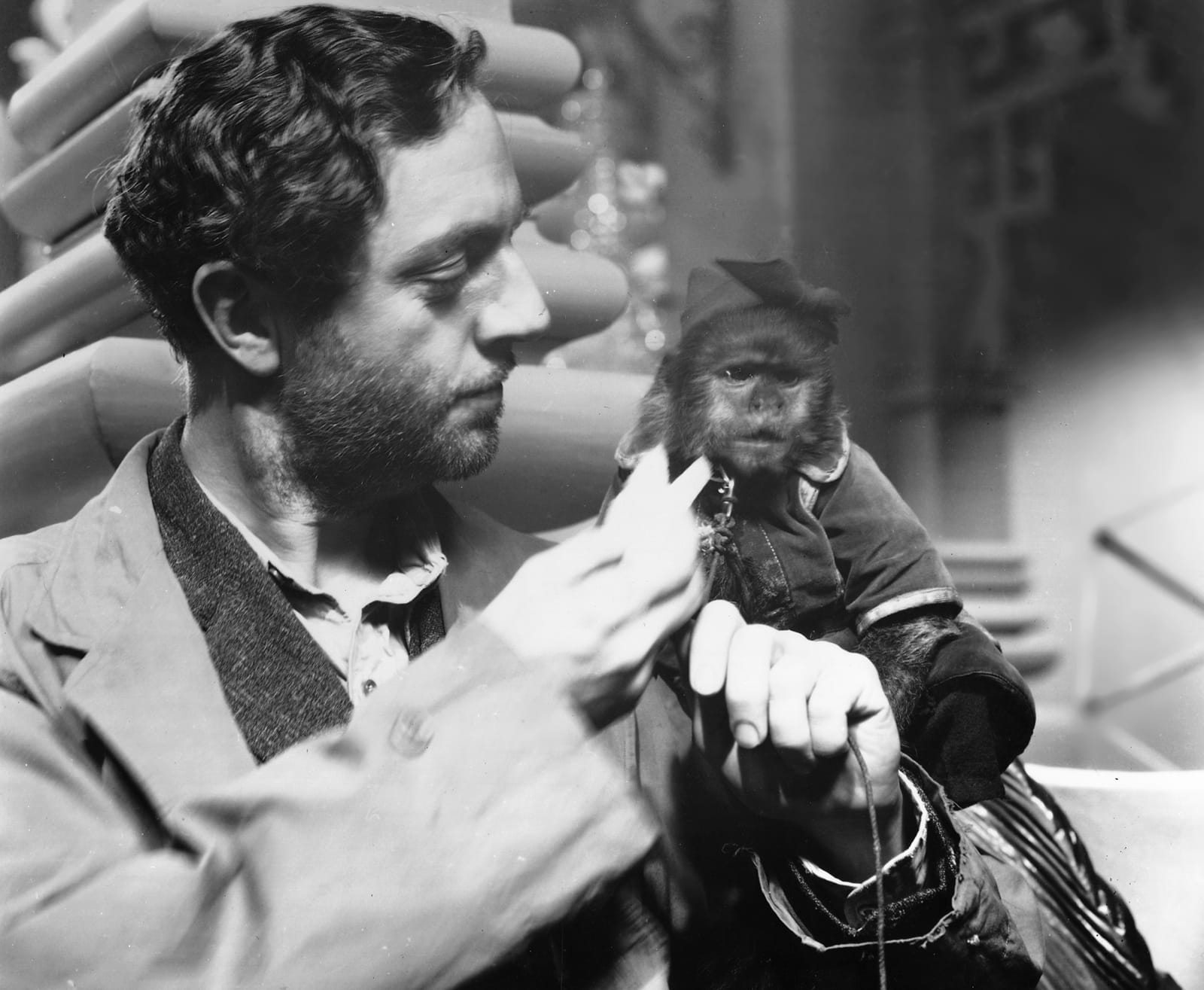My Man Godfrey: The Right Kind of People

Ask people to name a screwball comedy, and the title you’re very likely to hear first is My Man Godfrey. Widely used and later promiscuously misapplied, the genre label was coined to describe a certain type of romantic comedy that flourished in the 1930s, in which a couple’s crazily unpredictable courtship masks the fact that they’re perfect for each other. And indeed, in 1936’s My Man Godfrey, director Gregory La Cava offers an exceptional amount of craziness on the way to romantic (and audience) bliss.
The plot—flipped, flopped, and outright stolen many times since—revolves around Godfrey “Smith,” an obviously cultivated man (he is played by William Powell, the ultimate in urbanity) who has somehow slid so far down the Depression-era social ladder that he is occupying a packing case. He meets Irene Bullock, Carole Lombard’s beautiful but decidedly screwball socialite, when she descends on his peaceful ash heap looking for a “forgotten man” to check off on a scavenger-hunt list, along with Japanese goldfish and the like. An intrigued Godfrey agrees to go to the “Waldorf-Ritz Hotel” to help Irene win the hunt and teach a lesson to her snooty sister Cornelia. Then, once that goal is accomplished, he tells off the teeming masses of fat cats gathered at the hotel, or “empty-headed nitwits,” as he not unfairly describes them, and is ready to return to his junk pile when Irene—who is already falling in love—stops him with the fateful question: “Can you butle?” In one of those event progressions that somehow always seem quite logical in a thirties comedy, the next day a spruced-up Godfrey arrives at 1011 Fifth Avenue (a suitably nonsensical address that puts the building more or less in the lobby of the Metropolitan Museum of Art) to butle for the Bullock family.
There were hilariously dysfunctional families in American film before and after My Man Godfrey, but the Bullocks of 1011 Fifth Avenue represent peak lunacy. There’s devious Cornelia, played by the darkly beautiful Gail Patrick—“a sweet-tempered little number,” as the maid, Molly (Jean Dixon), calls her. There’s mother Angelica (Alice Brady), whose hangovers include visions of pixies (“I don’t like them, but I don’t like to see them stepped on”), and who is sponsoring a “protégé,” Carlo (Mischa Auer). Carlo’s sponsored talents—the ones that could be shown under the Production Code, anyway—involve a lugubrious rendition of the Russian folk song “Ochi chyornye,” a remarkable ability to make food disappear, and the single best gorilla impression in the history of American film. (Most of the correspondence between La Cava, screenwriter Morrie Ryskind, producers at Universal Pictures, and the censors at the Breen Office about the film involved stern warnings to make sure the term protégé could not possibly be taken as any kind of euphemism for gigolo.)
And then there is father Alexander, played by Eugene Pallette, a delightful character actor whose voice matched his tuba shape. He’s the most outwardly sane of the bunch, but as he states repeatedly, he may crack at any minute: “In prison, at least I’d find some peace.” Indeed, the entire Bullock family possesses a certain loopy charm—even Cornelia, with her uncanny ability to come out with the bitchiest possible remark about every situation, and even the sponger Carlo, because, after all, he does a killer gorilla impression. And the most endearing of all is Irene, who somehow managed, on the same night she hired a hobo as a butler, to also ride a horse into the mansion’s library.








